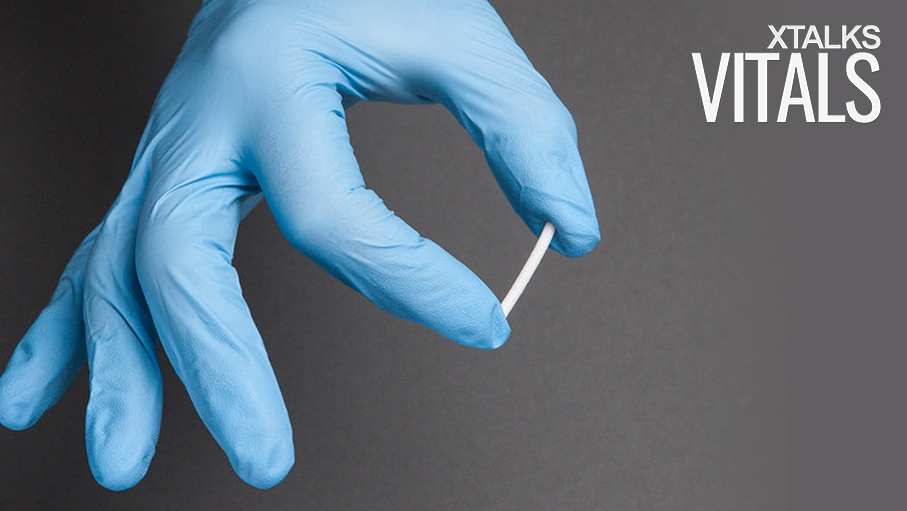The US Food and Drug Administration (FDA) has approved the first buprenorphine implantable medical device – marketed as Probuphine – for patients with opioid dependence. Co-developed by Titan Pharmaceuticals and Braeburn Pharmaceuticals, Probuphine is designed to slowly release a low dose of buprenorphine, for a six-month period.
While buprenorphine was previously approved to treat opioid dependence, it has historically only been available in the form of a pill or a dissolvable film. While these oral drug delivery methods are effective, they are reliant upon patient adherence to a medication schedule, and the medication can be vulnerable to theft.
For patients who are tolerant to low doses of buprenorphine, the implantable medical device could be a more convenient method for managing opioid dependence. Aimed at reducing prescription opioid abuse, dependence and overdose-related death, the FDA approved Probuphine to increase availability of medication-assisted treatment options.
“Opioid abuse and addiction have taken a devastating toll on American families. We must do everything we can to make new, innovative treatment options available that can help patients regain control over their lives,” said Dr. Robert M. Califf, FDA Commissioner. “Today’s approval provides the first-ever implantable option to support patients’ efforts to maintain treatment as part of their overall recovery program.”
Medication-assisted treatment utilizes currently-available medications – including methadone, buprenorphine and naltrexone – along with behavioral therapy and counselling, to effectively treat opioid dependence. When patient adherence to a medication-assisted treatment plan is optimized, individuals reduce their risk of death by 50 percent, according to the Substance Abuse and Mental Health Services Administration.
“Scientific evidence suggests that maintenance treatment with these medications in the context of behavioral treatment and recovery support are more effective in the treatment of opioid use disorder than short-term detoxification programs aimed at abstinence,” said Dr. Nora Volkow, director of the National Institute on Drug Abuse at the National Institutes of Health. “This product will expand the treatment alternatives available to people suffering from an opioid use disorder.”
The Probuphine product consists of four small rods that are implanted under the skin of the upper arm. The medical devices are surgically inserted and removed by physicians who are certified under the Probuphine Risk Evaluation and Mitigation Strategy (REMS) program.
A randomized clinical trial of adult patients with opioid dependence was conducted to determine how successful the implanted medical device was at reducing illicit drug behavior. Using both urine screening and self-report measures of illicit opioid use during the six month clinical trial period, the researchers found that 63 percent of patients showed no signs of drug use.
As more medical devices may be implanted in the opposite arm should the patient require further treatment, the FDA is requiring Titan and Braeburn to conduct further postmarketing studies. In addition, the FDA has required the product to carry a black box warning explaining the risks of implant migration, protrusion, expulsion and nerve damage following the insertion/removal procedure.












Join or login to leave a comment
JOIN LOGIN